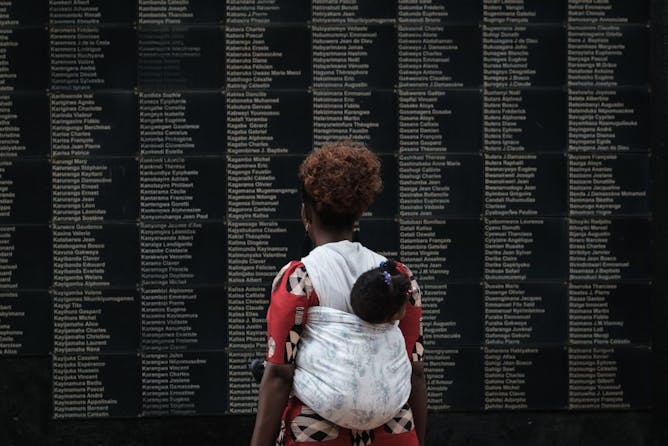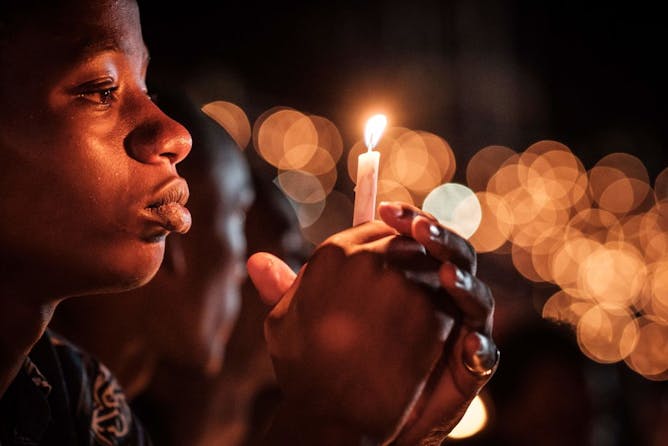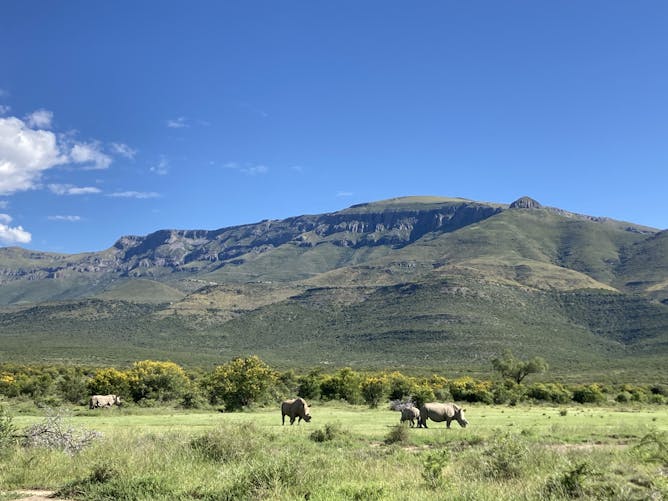|
|
|
|
Thirty years have passed since the Rwanda genocide, when an estimated 800,000 Tutsis and non-extremist Hutus were massacred in just over three months.
Sexual violence was used as one weapon of the genocide, and left indelible scars on survivors. Up to 500,000 women and girls were raped. Myriam Denov spoke to some of these survivors and the children they bore. She tells us about their experiences of marginalisation, but also the resilience they display in overturning a legacy of violence.
Rwanda’s post-genocide reconstruction efforts, through the Ndi Umunyarwanda (I am Rwandan) initiative, aimed to foster unity. While younger generations largely accept this vision of a unified Rwandan identity, concerns persist among older generations and policymakers about the potential for renewed ethnic tensions. This is particularly in the light of escalating violence in neighbouring Democratic Republic of Congo. Jonathan Beloff examines the threat posed
by armed groups in the region.
|

|
Kagure Gacheche
Commissioning Editor, East Africa
|
|

Myriam Denov, McGill University
The 1994 Rwanda genocide has left lasting scars. Children born of sexual violence and mothers have shown immense strength in overcoming their histories of violence.
|
|
|

Jonathan Beloff, King's College London
Young people have little desire to bring up their parents’ divisions, but older Rwandans remain fearful of a resurgence of tensions.
|
|
|

Ilana Webster-Kogen, SOAS, University of London
Listening to El Medioni’s work is a deep dive into the history of north African Jews over the last 150 years, long pre-dating his birth.
|
|
|

Hayley Clements, Stellenbosch University; Alta De Vos, Stellenbosch University; Matthew Child, University of Pretoria
The strategy aims to conserve biodiversity while also contributing to the creation of jobs and economic growth.
|
From our international editions
|
-
Lawrence Hill-Cawthorne, University of Bristol
The UK government has received advice that Israel is breaking international law in its assault on Gaza, so has an obligation to stop supplying it with arms.
-
Colin Michie, University of Central Lancashire
Streptococcal toxic shock syndrome is a rare but deadly condition triggered by the same bacteria that cause strep throat and tonsillitis.
-
Alex White, University of Cambridge
Angelou’s 1960s political journalism in Africa demonstrates her desire to link the struggle for civil rights in the US to global campaigns against racism.
-
Matthew Carl Ives, University of Oxford; Belinda Wade, The University of Queensland; Saphira Rekker, The University of Queensland
Cement and fossil fuel production has reached unprecedented levels, with most of the emission growth traceable to a relatively small number of companies.
-
Katie Kapurch, Texas State University; Jon Marc Smith, Texas State University
To truly appreciate the track, it’s important to go beyond the long shadow of the Beatles’ version.
|
|
| |
|
|
13 April - 10 May 2024
•
Cape Town
|

|
17 April 2024
•
Cape Town
|

|
19 April 2024
•
Cape Town
|

|
4 May - 22 June 2024
•
Cape Town
|

|
|
|
|
| |
| |
| |
Would you like to republish any of these articles?
|
|
It’s free to republish, here are the guidelines.
Contact us on africa-republish@theconversation.com in case you need assistance.
|
| |
| |
| |
| |
|
|
|
|
|
|
|